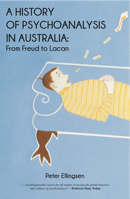What is the best we can expect? Is it, as graffiti on a bridge over the Yarra advises: to “Know hope”, or is it to put hope aside and know where we actually are? I pose these two as alternatives because that is how they seem to me. Perhaps it is my quirkiness: But I think hope gets in the way of awareness. I prefer action, the sort of movement which Kierkegaard was getting at when he noted that: “Becoming is a movement from some place, but becoming oneself is a movement at that place.”
Movement can be spatial – taking oneself to a new location – as the New York writer, E. B. White did when he moved to rural Maine in 1939. Or it can be cerebral, as White demonstrated by becoming the most important contributor to the New Yorker when it was America’s most important literary magazine. White was that most unusual of things – deliberately not famous. Despite writing the world’s best-selling (50 million copies) children’s paperback – Charlotte’s Web – and the most influential English language writing guide – The Elements of Style (also known as Strunk and White) – he was able to walk through the lobby of the Algonquin Hotel (where the most famous writers gathered in the 50s), and only be recognized by his friends.
For White being fully awake was as good as it gets. It was a state of awareness he found when living in the small New England town of Maine. “Confronted by new challenges, surrounded by new acquaintances—including the characters in the barnyard, who were later to appear in Charlotte’s Web—I was suddenly seeing, feeling, and listening as a child sees, feels, and listens,” he noted. ”It was one of those rare interludes that can never be repeated, a time of enchantment.”
White was alive to the way fame and narcissism blind, creating reflective surfaces rather than vistas. Like his contemporary, Marshall McLuhan, he saw the sleight of hand of media, noting that television’s function was to advertise the Elsewhere. This required forgetting the primary and the near in favour of the secondary and the remote. “More hours will be spent digesting ideas, sounds, images, distant and concocted,” he wrote when TV was in its infancy. “In sufficient accumulation, radio sounds and television sights may become more familiar to us than their originals. A door closing, heard over the air; a face contorted, seen in a panel of light—these will emerge as the real and the true; and when we bang on the door of our own cell or look into another’s face the impression will be of mere artifice.”
White correctly gauged the future because he had such a sharp view of the present. Like McLuhan, whose 1964 Understanding Media remains a cult classic, he had the eye of an artist, which meant he did not take what was around him for granted, but could see through things. McLuhan predicted that we would be as numb in our new electric world as was “the native” involved in our literate, mechanical culture. He saw media as a massacre of the innocents, wherein it is only the serious artist, someone able to encounter technology with impunity, who can survive. Why? Because, it is the artist, who is in the habit of looking through things, past the veneer, who is able to be aware of the changes in sense perception, the illusion that riddles modern life.
In this, the construct of the artist is a counter-statement, rather than an automatic endorsement. It can stare reality in the face, as White did when – taking his son swimming in the same lake he had visited as a boy with his own father – he glimpsed his mortality. Watching his son climb into wet bathers, White wrote: “As he buckled the swollen belt, suddenly my groin felt the chill of death.” Apart from great writing, the line deflated pomposity and elevated brevity, the core of The Elements of Style, a handbook on writing that has sold millions of copies. Its central idea – “Omit needless words” – did not mandate short sentences but rather the need for every word to tell.
This is similar to what happens in a psychoanalysis, where the patient is required to speak without censoring, and to hear what emerges. Each word has to tell – it has to reveal the subjectivity of the speaker. While there will be many words, it is the words that tell (usually something the speaker finds disturbing and surprising) that matter.
White thought the best writers were “recording secretaries” for wonders large and small, something that could be said of analysts. It is, in fact, how Lacan, saw the task of treating psychosis, but also has resonance with common or garden neurosis. Both the writer and the therapist are charged, as White felt he was, with safekeeping “unexpected items of worldly or unworldly enchantment.” For White, it went so far as him fearing he would be held personally responsible if even one was lost. For all his insight, White still suffered. He knew fear, anxiety and self doubt and yet managed to revel in life. I am not sure how much, if at all, he hoped, or what he might have hoped for. But his knack for seeing what was going on around and within him makes him a living bridge. It is, after all, as one of White’s literary colleagues has noted, “not easy to write prose, or live a life, with his humour, resilience and staying power.”

